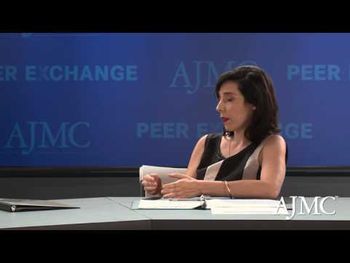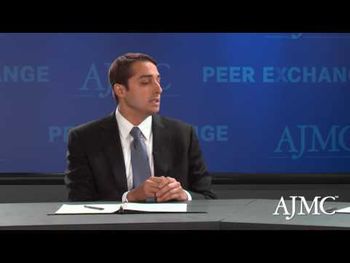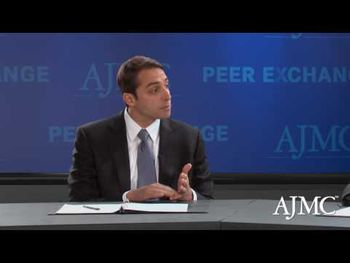
Oncology
Latest News
Latest Videos

More News

















Within 4 months of the last reported incident, Juno Therapeutics has again halted the phase 2 “Rocket” trial of JCAR015 in patients with relapsed or refractory B cell acute lymphoblastic leukemia (ALL).

Here's a glimpse into what The American Journal of Managed Care’s 5th annual Patient-Centered Oncology Care® meeting had in store for its attendees.

There is significant uncertainty surrounding the healthcare system’s future in 2017 under a Republican Congress and President, but it’s unlikely that the Affordable Care Act will be repealed without some replacement that accommodates the individuals newly covered by it, said Robert W. Carlson, MD, CEO of the National Comprehensive Cancer Network.

The 5th Annual Patient-Centered Oncology Care Meeting closed out with a panel discussion with an eye on the future. Donald Trump's surprise election has caused turmoil in the healthcare industry as the Affordable Care Act seems certain to be repealed at least in part. However, the move to value-based care will likely continue as planned.

This week, the top managed care stories included the FDA's approval of rival combination therapies for type 2 diabetes, the American Medical Association issued mHealth guidelines, and a study found the dementia rate declining.

When helping cancer patients decide if immuno-oncology treatments are right for them, clinicians should not focus only on the potential risks and benefits, said Debra L. Madden, cancer research advocate and patient representative. Oncologists should ensure patients are aware of the variable responses to the therapy, like the phenomenon of pseudoprogression.

At the 5th annual Patient-Centered Oncology Care® meeting in Baltimore, Maryland, moderator Bruce Feinberg, DO, was joined by a care provider, a payer, and a community oncology representative to discuss efforts that maintain the patient at the core of payment models.

While smoking has long been known to aggravate diabetes, the new study shows just how deadly the habit is for those with the chronic condition.

The 5th annual Patient-Centered Oncology Care® (PCOC) meeting, hosted by The American Journal of Managed Care, November 17-18, in Baltimore, Maryland, concluded with a panel discussion on the future of oncology care in 2017. The panelists concurred that value-based payment is here to stay despite the imminent changes in healthcare.















